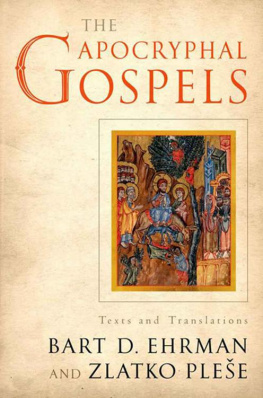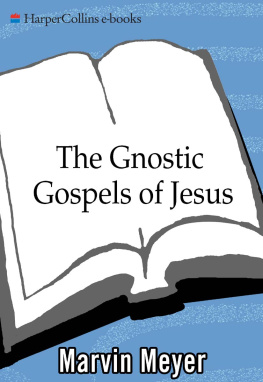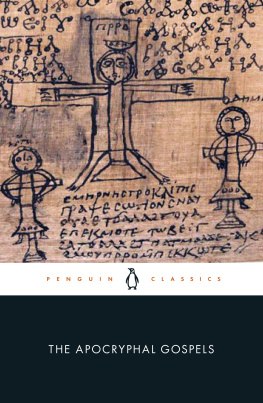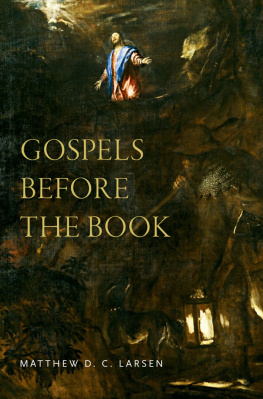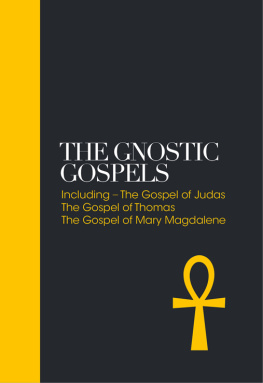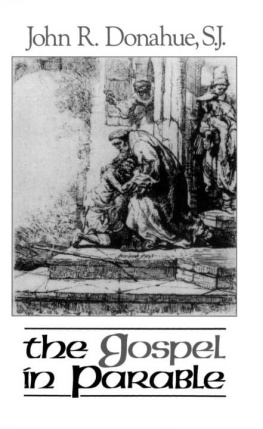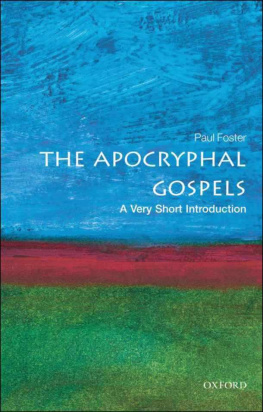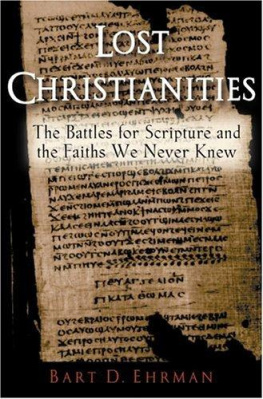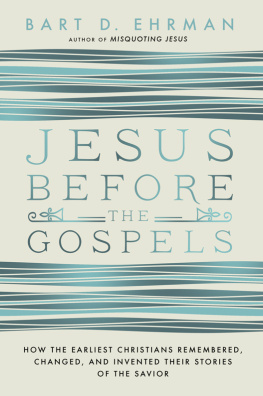The Apocryphal Gospels
Texts and Translations
The Apocryphal Gospels
Texts and Translations
Bart D. Ehrman and Zlatko Plee


Oxford University Press, Inc., publishes works that further
Oxford Universitys objective of excellence
in research, scholarship, and education.
Oxford New York
Auckland Cape Town Dar es Salaam Hong Kong Karachi
Kuala Lumpur Madrid Melbourne Mexico City Nairobi
New Delhi Shanghai Taipei Toronto
With offices in
Argentina Austria Brazil Chile Czech Republic France Greece
Guatemala Hungary Italy Japan Poland Portugal Singapore
South Korea Switzerland Thailand Turkey Ukraine Vietnam
Copyright 2011 by Oxford University Press, Inc.
Published by Oxford University Press, Inc.
198 Madison Avenue, New York, NY 10016
www.oup.com
Oxford is a registered trademark of Oxford University Press
All rights reserved. No part of this publication may be reproduced, stored in a retrieval system, or transmitted, in any form or by any means, electronic, mechanical, photocopying, recording, or otherwise, without the prior permission of Oxford University Press.
Library of Congress Cataloging-in-Publication Data
The Apocryphal Gospels : texts and translations /
[compiled by] Bart D. Ehrman and Zlatko Plee.
p.cm.
Coptic, Greek, or Latin, with English translation on facing pages.
Includes bibliographical references.
ISBN 978-0-19-973210-4
I. Ehrman, Bart D. II. Plee, Zlatko.
BS2850.A3A66 2011
229.804dc22 2011012770
1 3 5 7 9 8 6 4 2
Printed in the United States of America on
acid-free paper
To Liz Clark
Colleague, Friend, and Scholar Extraordinaire
Preface
interest in the apocryphal writings of early Christianity has exploded in recent years. Although there continue to be debates over just what the term apocrypha (literally: hidden writings) means in this context, or what it ought to mean, the term is most widely used to refer to books of roughly the same genre as those that came to be included in the canon of the New Testament (Gospels, Acts, Epistles, Apocalypses) but that were excluded. The majority of these books are pseudonymous (as are some of those that were included).
The interest in this amorphous body of literature is evident in the widespread use of collections of apocrypha, both among scholars and graduate students (e.g., W. Schneemelcher, New Testament Apocrypha, and J. K. Elliott, Apocryphal New Testament) and in the general public (e.g., B. Ehrman, Lost Scriptures). Excellent translations can be found in other European languages besides English: German (Scheemelchers original German edition, Neutestamentliche Apokryphen in deutscher bersetzung, 2 vols.), Dutch (A. F. J. Klijn, Apokriefen van het Nieuwe Testament, 2 vols.), Spanish (A. de Santos Otero, Los Evangelios apcrifos), Italian (M. Erbetta, Gli apocrifi del Nuovo Testamento, 3 vols.), and French (F. Bovon, P. Geoltrain, and J.-D. Kaestli, crits apocryphes chrtiens, 2 vols.), for example. Most of these collections, however, provide translations only (exception: de Santos Otero). Where is one to go for a collection of these texts in the original languages? Regrettably, original text editions are sometimes difficult to track down. This is not true in every instance, of course. The Coptic materials discovered near Nag Hammadi, for example, are readily available in the handy five-volume paperback edition by Brill of The Coptic Gnostic Library. Some individual apocrypha outside of Nag Hammadi have also been published in original languageEnglish translation editions, such as R. Hocks edition of The Infancy Gospels of James and Thomas for the Scholars Bible, or W. Strokers edition of all the assorted agrapha of Jesus, Extracanonical Sayings of Jesus. Moreover, fragments of apocryphal Gospels have recently become available in original language text editions (A. Bernhard, Other Early Christian Gospels; E. Schlarb and D. Lhrmann, Fragmente apokryph gewordener Evangelien).
Other apocryphal works have not fared as well, however. Where does one go to find a Greek edition of the Gospel of Nicodemus? Or a Latin edition of the Death of Pilate? Or a Coptic version of the Story of Joseph the Carpenter? Or full English translations of any of these? Where does one turn to have Egerton Papyrus 2, the Gospel of Mary, and the Infancy Gospel of Thomas, in their original languages, in one handy volume? In some instances one must resort to Constantine von Tischendorf s volumes (e.g., Evangelia Apocrypha) from the mid-nineteenth centurya remarkable accomplishment in its time, but inadequate for the needs of scholars today. And, of course, many texts have been uncovered since Tischendorf s day, some of them relatively difficult to access.
What is even more remarkable is that there has never been, until now, a collection of all the noncanonical Gospel materials from early Christianity in an original languagefacing page English translation edition. That is the need that this volume seeks to redress. In it we have collected nearly all of the apocryphal Gospels originally written in Greek, Latin, and Coptic (for exceptions, see later), in the best editions now available, and provided them with fresh and readable English translations.
Our decision concerning which Gospels to include was quite simple: we wanted to include everything that a graduate student or scholar working on the apocryphal Gospels would need or want access to, with one major proviso: since the Nag Hammadi Library is readily available we have not included the Coptic texts. But there is a proviso to this proviso: it is our sense that anyone who is teaching or researching early Christian Gospels will surely want easy access to the Gospels of Thomas and Mary, which are already included in the Coptic Gnostic Library (although the Gospel of Mary was not discovered at Nag Hammadi). We have felt compelled, then, to make exceptions in these two cases, and to include these texts with fresh translations. We have also chosen not to include the Coptic Gospel of the Savior, as we are awaiting a final critical edition of the text currently under way.
Altogether we provide over forty Gospel texts in this collection. Some of them, of course, are complete Gospels (such as the Gospel of Thomas), others are surviving large fragments (the Gospel of Peter), others are only small fragments (Egerton Papyrus 2), and others are known only from the quotations of church fathers (the Gospel of the Ebionites). For each text we have provided a brief introduction that deals with important historical, literary, and textual issues. We have kept our apparatus sparse, intentionally, as we see this as a hand edition for students and scholars. Nor have we created new critical editions of these texts. Our model has been the Loeb Classical Library, not Die griechische christlichen Schriftsteller. We have, however, included cross-references to other early Christian literature (chiefly the New Testament) and provided notes on particularly thorny textual or literary problems. Abbreviations follow The SBL Handbook of Style, ed. Patrick Alexander et al.
This has been a joint project from the outset. One of us has taken responsibility for the primary work in the translation and introduction of one or another of these texts, but each of us has reviewed the translations and introductions of the other.
Next page
